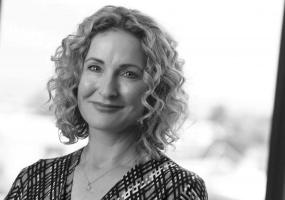Conference: Nordic Media in Theory and Practice
25 Feb 2008
Nordic Media in Theory and Practice 8-9 November, 2008 UCL campus, central London A two-day conference organised by the Reuters Institute for the Study of Journalism, University of Oxford, & Department for Scandinavian Studies, UCL At a glance As part of the Axess Programme on Comparative European Journalism, the Reuters Institute for the Study of Journalism at the University of Oxford and the Department of Scandinavian Studies at University College London, are organising a conference on Nordic media in theory and practice. The conference will feature keynotes, plenary sessions and roundtables featuring distinguished media practitioners and academics, as well as parallel sessions where scholars can present state-of-the-art work on media in the Nordic countries. Why Nordic Media? Our area of interest is the Nordic countries (i.e. Sweden, Denmark, Norway, Finland and Iceland) and its media landscapes. This region is widely held to be socially, culturally and politically homogenous compared to other regions of the world, a homogeneity that has deep historical and linguistic roots. In the field of media, the historical similarities between the Nordic nations are many as well: strong public service organisations (that went through deregulation late, compared to other European nations), high newspaper readership, high Internet penetration, strong and well-organised unions for journalists, etc. However, this homogeneity should not be overstated as there are also important differences between the nations: differences in political landscapes (e.g. the presence of populist parties, membership/non-membership of the EU), differences in key policy areas (e.g. acceptance of immigrants and refugees), as well as differences in media landscapes (e.g. the place and role of commercial broadcasting). Are the Nordic nations now diverging after a long period of convergence? Nordic media trends also impact on the wider world – broadband and mobile networks of the region are used as models in the rest of the world, and the 'Metro trend', i.e. the rise of free dailies, started in Sweden. For all these reasons (historically-rooted similarities; political and perhaps also cultural divergence; the place of the Nordic countries in a wider, global media environment), the region stands out as a particularly interesting area to study. Comparative regional studies are of particular interest as many developments that impact on media in the contemporary era are global and transnational in character, i.e. technological developments, economic and political deregulation, increased mobility of audiences, political disaffectation etc. How do these transnational trends manifest in national and regional arenas? Scope The concept of practice (media practice, journalistic practice, practices of consumption, ethical practice etc) connects three core aspects of media studies, namely production, texts and audiences: How is media work done? How do texts address audiences, and what do people do with media texts? The core set of questions that the conference aims to address are: How is media work done in the Nordic nations? How do Nordic media, news media in particular, respond to global trends of technological convergence, commercialisation, concentration of ownership and changes in journalistic practice? Does the existence of a strong and coherent journalistic professional identity, as well as a strong public service tradition, in the Nordic countries have any bearing on how these global trends manifest regionally? Are Nordic media landscapes converging or diverging? Are the differences between Nordic nations becoming more important and more marked than the similarities? Are different media practices and standards arising as a result of differences in political and cultural landscapes? Does the fact that Norway and Iceland remain outside the EU have any impact on media developments and media practices, for example? What is the place of Nordic media in a European/global context? Can wider conclusions about cultural and economic globalisation, the role of regions etc be drawn from an analysis of Nordic media landscapes? What is the role and importance of cross-Nordic media ownership (i.e. Norwegian media corporations owning Swedish news media outlets, Swedish media corporations owning Finnish news media outlets etc), for example? Does it impact on media practices? Call for papers The conference organisers would like to invite papers from scholars and media practitioners with an interest in media in the Nordic countries. The conference aims to be transdisciplinary and we welcome papers from all academic subject areas. Possible themes and subject areas include (but are not limited to): The changing Nordic media landscape: historical perspectives and contemporary observations Nordic media in a comparative perspective – what is 'Nordic' about Nordic media? Journalistic/media practice in the Nordic countries Nordic perspectives on media ethics Covering the multicultural society Media, democracy and politics Digital media, convergence and changing media practices in the Nordic countries Media use and consumption in the Nordic countries Nordic media cultures/media and culture Interested contributors should send an abstract (maximum 500 words) and full contact details and information on institutional affiliation(s) to the organising committee Chair, Dr Henrik Örnebring, via email no later than June 20th, 2008. Notice of acceptance will be given within a month. Full papers should be sent (likewise via email) no later than October 10th, 2008. Venue, fees etc The conference will be held at the UCL campus in central London. Accommodation will not be arranged by the conference organisers but there are plenty of hotels and hostels in the area (suggested accommodation venues will appear on the conference web page later). The final conference fee has not yet been fixed but will not be higher than £40 (which will include lunch and refreshments for both days of the conference). Questions? Contact the organising committee Chair, Dr Henrik Örnebring (email as above). Please also refer to the conference website which will be updated as the conference preparations progress. The organising committee wishes you welcome to London 8-9/11 2008! Dr Henrik Örnebring (Reuters Institute, Oxford) Dr Mary Hilson (Dept of Scandinavian Studies, UCL) Dr Titus Hjelm (Dept of Slavonic and Eastern European Studies, UCL) Dr Johanna Sumiala-Seppanen (Goldsmiths College/University of Helsinki)




